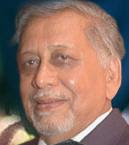This is the right time for the salaried persons to invest in tax saving scheme, who have not thought of availing tax benefit, through saving and investment during the year. The government of India has given some concession to tax paying public in case they subscribe to certain specified schemes. This includes schemes launched by Government of India through bank and small saving schemes through post offices. The scheme introduced by private as well as public Mutual fund and Insurance companies are also allowed to provide 80 c benefit to income earners. The maximum investment, under the provision of 80 c of IT Act, could be made up to is Rs. One Lakh. This gives them tax concession up to Rupees Thirty thousand. In case benefit of health insurance is added the tax benefit becomes much more.
The month of December is coming to an end now and almost all salaried employees must be busy evaluating how to save taxes out of their earned income. Those who work in companies must be reminded by their account department to submit proof of their investment in specified scheme which they might have subscribed. Many employees started investing in systematic way and they would not have any difficulties in submitting the proof of their investment to avail tax benefit. But most of the employees do not subscribe to those schemes till last moment. Now is the time for those employees who want avail tax benefit through investment. Ofcourse now investment shall have to be in lump sum amount. Had they planned earlier it could have been much easier as they could have taken the benefit by installment payments. Now there is only three month more to complete the financial year and any investment to avail tax benefit shall have to be in lump sum amount only. The amount of investment for tax benefit for the year is maximum Rs One lakh. The investment for this purpose can be done through EPF, PPF, Insurance, SCSS, and Bank FD for five years and through post office instruments. Many of our readers have asked as to which investment instruments they should select to reap the best benefit.
This is a difficult questions to answer. Every salaried person may have their own priorities. All regular confirmed employees, whether in Government or in Private sector and public sector, would have EPF. Those who have taken loan for construction of home would also get tax concession. A portion of 80C would be covered by these contributions. So they might have to depend on other forms of instrument partly. But self employed persons like Doctors, Advocate, business women, artists ,who do not have PF shall have to depend on Post office instruments or on PPF and or ULIP, Life insurance or on Mutual funds. Our recommendations would be first to avail the benefit of 80c through PPF. It is completely safe, interest rate is high, and no income tax is required on earnings. But it has longer period to get back the money. In fact National saving certificate, Bank Fixed Deposit have shorter maturity period. The investment in PPF can be made only unto Rs.70,000/-.So for the balance Rs. 30,000/- investors would have to depend on other instruments. At this point of time the investment in ELSS of mutual fund or ULIP could be thought of. But one thing must be kept in mind that ULIP and ELSS are equity based so a risk element would always be there. No chicken hearted investors should invest in ELSS. Those who are young and brave they can invest in Mutual fund and reap higher benefit if they can remain invested for atleast five years. What about senior citizen who do not have salaried income but get higher pension and need to invest to make their income totally free from income tax? Senior citizen can invest in Senior Citizen saving Scheme. This is the best instrument for them. Why? Because SCSS provides highest interest in today’s market. It provides now 9% percent return per annum and that is the highest interest in the market. Those who have PPF could opt for it, for it gives interest free return. In case their account is more than fifteen years old then the money lying in the account could be taken out whenever they need. I do not recommend ELSS for senior citizen who is above 75 years. Younger persons can first subscribe to ELSS and keep it there for more than five years and reap good benefit. The maturity period of ELSS is three years.
No wonder, this is also the time when mutual fund houses and distributors aggressively push equity-linked savings schemes (ELSS) because one gets tax relief under section 80C for investing in these schemes. Returns from these schemes have been at par with the Sensex returns in the last three-five years. According to data from Value Research, a mutual fund rating agency, these schemes have returned almost 83 per cent in the last one year, as against 76 per cent by the Sensex. In the last three and five years, while these schemes have returned 9 and 21 per cent, the Sensex has returned 8 and 22 per cent, respectively.
The greatest benefit of ELSS is, if invested properly and for longer period, it provides market related returns. My recommendation would be to have a disciplined approach for availing tax benefit. Income earner should invest systematically from the beginning of the year a fixed amount for eleven month. This way it would not trouble them at the end of their year and they would be able to ride the volatility of the share market. It is true that ELSS gives better return in a longer term and can give dividend too without any income tax. This suggestion is for young investor only as long term investment may not suit the seniors.
--------------------------------------
blogcatalog
Subscribe to:
Post Comments (Atom)





No comments:
Post a Comment